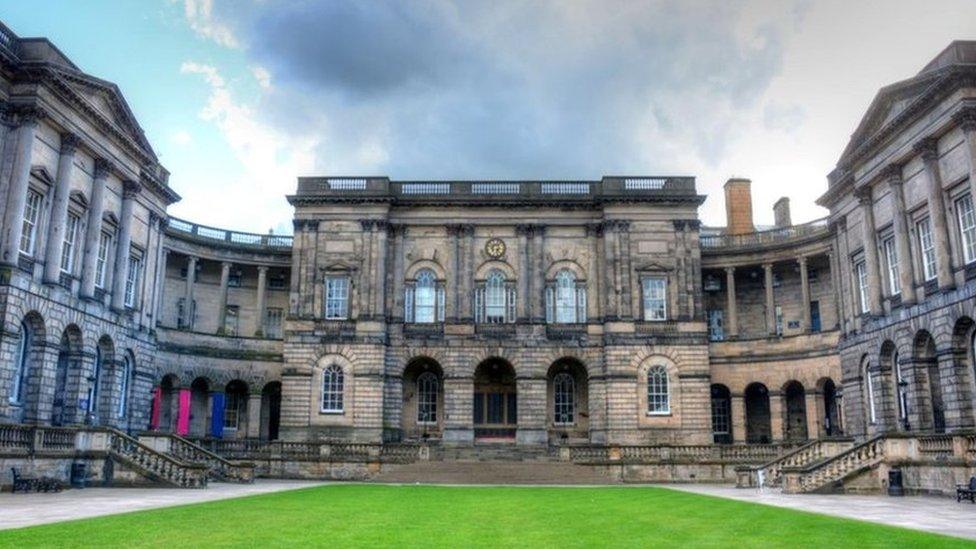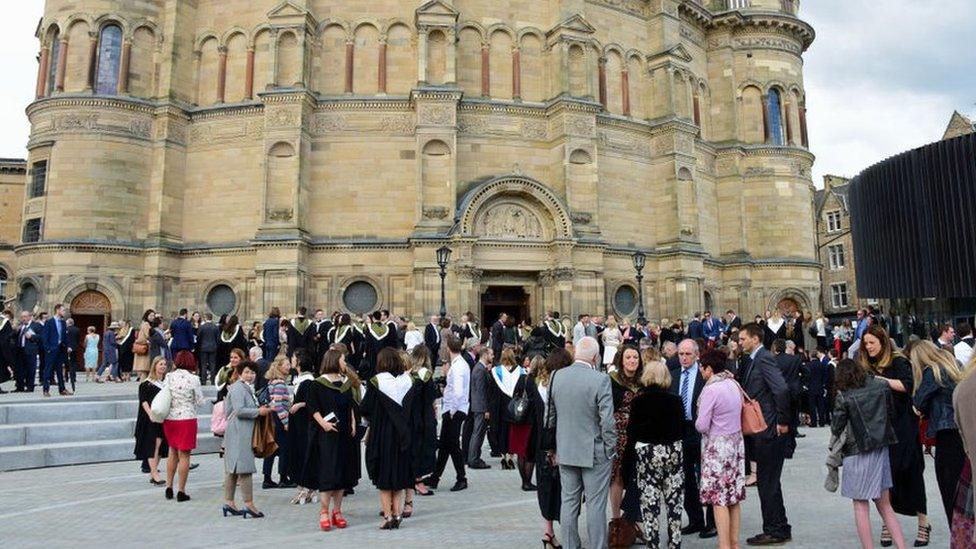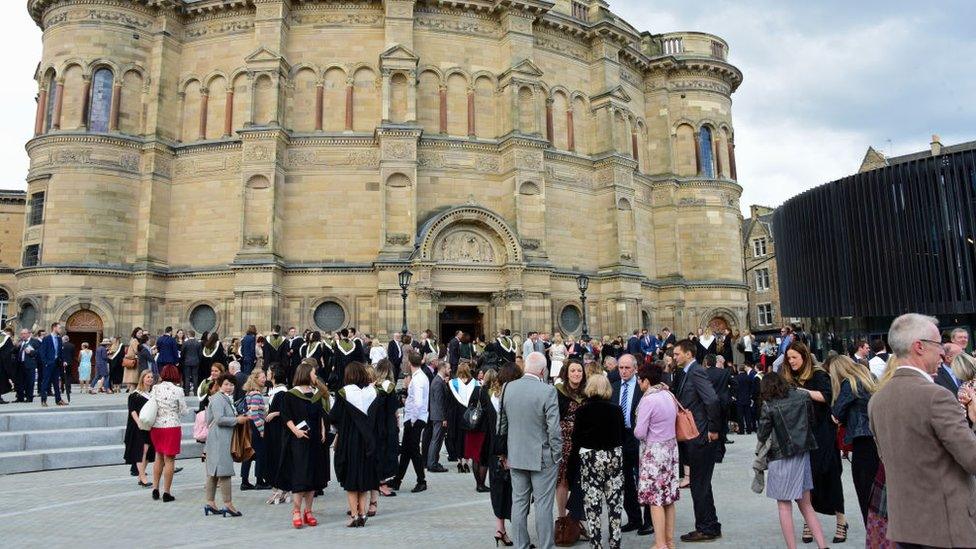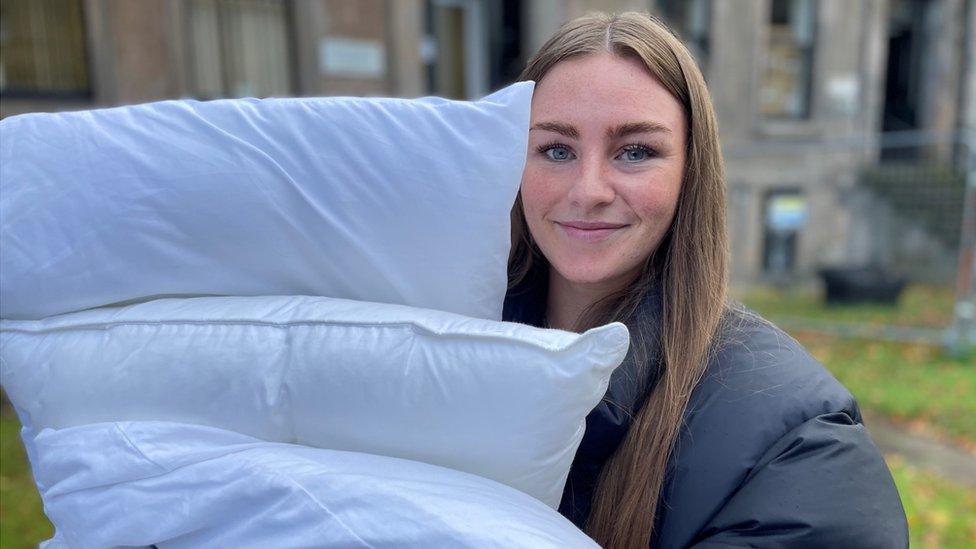Ordinary Scots rejected by Edinburgh university, says MSP
- Published

Edinburgh University follows a flag system to prioritise students from deprived areas
Scottish applicants from good schools and affluent areas have been turned down by the University of Edinburgh, new figures suggest.
Only priority applicants from more deprived areas were accepted to courses including law, business and philosophy.
Labour MSP Michael Marra, who obtained the data, said reliance on income from UK and overseas students meant many "ordinary Scots" were missing out.
The university said it was making a sustained effort to widen access.
Mr Marra, Regional MSP for North East Scotland, said one of his constituents made a freedom of information request after her son failed to gain a place to study law, despite having good grades.
In an interview with The Scotsman, external, Mr Marra said a "basic principle" of a Scottish education was being breached.
"We now have hundreds of ordinary young Scots applying to our top universities who in reality have no chance of getting in," he said.
Edinburgh University follows a flag system to prioritise students.
To qualify for a flag applicants must live in an area within the top 40% of the most deprived parts of Scotland or come from a low attainment state school.
There are also "plus flag" applicants, which include refugees, care experienced applicants or those from the top 20% most deprived parts of Scotland.
Those with a plus flag are usually guaranteed a place on degree courses.

The university said it was making a sustained effort to widen access
The figures show more than 1,200 Scottish students applied to study law at Edinburgh in 2022.
After the admissions process, 168 plus flag students were offered places as were two with a flag. No one without a flag was offered a place.
Mr Marra, Scottish Labour's education spokesperson, said a cap on funding for free education places for Scots was causing the problem.
He said: "I am all for widening access. The problem is the cap on the number of Scottish students by the SNP.
"For 13 years they have refused to increase the rate paid to universities for educating Scottish students."
Universities are responsible for their own admissions. With the exception of controlled subjects - medicine, dentistry, nursing and initial teacher education - they decide how many places to allocate to each course.
'World-class'
A University of Edinburgh spokeswoman said: "We take our commitment to widening access very seriously and recognise that a sustained effort is required to achieve meaningful social mobility in communities.
"More than 80% of our entrants from Scotland consistently come from a state school and the proportion of students from Scotland's most disadvantaged areas has almost doubled since 2015."
Higher Education Minister Jamie Hepburn said the Scottish government was committed to widening access to higher education.
"Since 2006-07, the number of Scottish-domiciled full-time first degree entrants has increased by almost 30%, to over 33,000 in 2020-21.
"UCAS data from last month shows a record number of 18-year-old Scots secured a place at our world-class universities in 2022."
The Scottish Funding Council's latest report on widening access shows 16.7% of full-time first degree entrants to university were from the 20% most deprived areas of Scotland in 2020-21.
- Published21 November 2022

- Published11 October 2022
